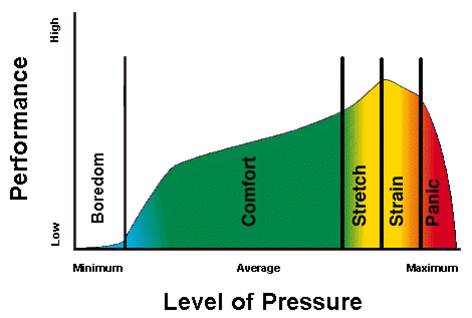- “I have too much pressure in my life!”
- “I’m stressed out!”
- “I feel like I can’t cope!”
- “I’m at the breaking point!”
We have all heard these statements, and maybe even said them at times in our lives – and for good reason. The nature of how we work is changing in directions that can be unhealthy – unless we develop mechanisms for dealing with it all. First I will summarize why stress is such an issue in our modern life. Then we will look at coping strategies.
Today we are expected to respond to the needs of our work faster and many of us feel like we are on duty 24 hours a day. In business we feel the pressure of global competition and so do our clients who try to shift the pressure on them to us. We are connected to work around the clock with email and our Blackberries, iPhones and other persistent, nagging devices.
Professor Cary Cooper
So let’s first understand the problem with some definitions. For that I turn to Professor Cary Cooper CBE, a Canadian-born British psychologist and Professor of Organisational Psychology and Health at Lancaster University Management School in the UK. Cary is one of the foremost leaders in understanding this topic.
He writes, “It's important to understand that pressure and stress are not the same thing. In fact, we all need some pressure in our lives - it stimulates us into action, gives us a buzz, and enhances our performance.
“However too much or too little pressure can have a negative impact on performance. Too much, and your concentration deteriorates, you can't think clearly, and you run the risk of 'burn out'. Too little, and you can become apathetic, bored and de-motivated. You risk the opposite of 'burn out': 'rust out'.
“In contrast with pressure, stress is when you perceive that the demands placed upon you exceed your ability to cope. And there's also an actual physiological difference between the two: someone experiencing stress has higher levels of stress hormones in their bloodstream. Nowadays it's also accepted that external and internal factors are equally important in causing stress - which is why different individuals can cope with very different levels of external pressure." (Under Pressure: Successfully Coping with Stress, Prof. Cary Cooper. BDP Media Ltd., 2003
Here is a look at how pressure and stress are related.
When the sources of pressure outweigh the coping mechanisms, pressure stops becoming a motivator and becomes stress. Our innate personality plays a key role in this balancing act, but we learn to bolster our coping mechanisms to insure positive outcomes from the pressure.
Here is another way to look at what pressure can do to our productivity:
Some of the personality aspects which have an influence on the way we cope are our drive to succeed, impatience, need for control and personal influence.
Pressures come from many sources. Some include workload, relationships, lack of recognition, organization climate, personal responsibilities, performing in a managerial role, home / work balance, and everyday hassles.
Here I would like to quote from an article I coauthored with my colleague Dr. Andrea Szameitat. The focus of her work is to help PhD candidates survive the extreme pressures of completing their dissertations. Andrea writes:
Pressure to a certain degree is manageable
Professor Cary Cooper’s perspective makes it clear that pressure is manageable via our coping strategies. It calms me to see that we can control a certain part of what I already perceive as causing discomfort. But under which circumstances (how high the pressure can get, how long it lasts, etc.) we start feeling stressed differs individually – depending on the personality as Cooper’s model points out - and also on our coping strategies which are different and might work better in one situation than in another. Apart from that, some people have developed more coping strategies than others.
What are coping strategies for stress
"Coping strategy" - this term is so frequently used and seems to be widely understood but quite honestly, I have always wondered what it really means and in some situations I encounter I suspect that I might not know the “right ones” for dealing with my own pressures. Thus I have done a little online research. Here are my results:
Coping strategies are all about taking charge: of our thoughts, emotions, bodies, schedules and the way we deal with problems;
Besides the short-term strategies that are not always the most helpful ones for all of the parties included (see cartoon on the left), they fall into two main categories:
Emotion-focused coping strategies: In order to get control over the emotions that go along with our perception of stress on the long term; include managing hostile feelings, releasing tension, meditating or systematic relaxation procedures. These coping strategies are effective with stressors we cannot avoid, we would then need to accept it or to adept to the stressor. For some easy stress relief techniques click here.
Solution-focused coping strategies: In order to change or eliminate the stressor; here you really deal with the cause of the problem: once you have identified it, you can either alter, avoid or eliminate the stressor;
And of course there are also negative (mainly unhealthy) coping strategies, such as smoking, over- or under-eating, taking out your stress on others, withdrawing from friends and family, zoning out in front of the TV or computer, etc. These are to be reduced or best avoided.
Here comes one last advice that has always helped me a lot but it is so simple that I tend to forget it again and again: If your general physical health is well, it is much easier to deal with pressure and stress. Thus, quantity and quality of your sleep, food, drinking (water) and exercise need to be really high.
In the meanwhile stay cool. And if you happen to be writing a PhD dissertation, you might want to visit Dr. Szameitat.
- Herb





